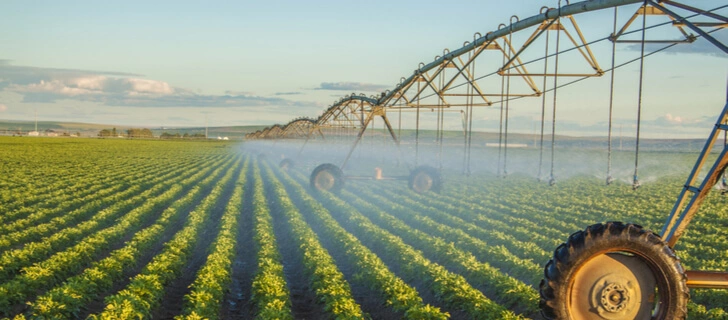Crop protection is a major concern for farmers across CIS countries, including Russia, Ukraine, Belarus, Kazakhstan, and Uzbekistan. Pests and diseases can devastate yields, affect food security, and reduce profitability. With increasingly unpredictable weather patterns and intensive cropping practices, effective pest and disease management has become more important than ever. Modern agrochemicals, combined with biological solutions, provide a robust framework for protecting crops while ensuring sustainability.
Targeted Insecticide Solutions for CIS Crops
Common pests such as bollworms, aphids, thrips, and mites are responsible for significant crop losses across CIS regions. Modern insecticides, including Indoxacarb 150 EC (Irwin 150 EC), Tebufenpyrad 200 EC (Tebumight 200 EC), and Spinosad 480 SC (Spinox 480 SC), offer broad-spectrum protection.
For example, vegetable and cotton farmers in Uzbekistan and southern Kazakhstan rely on these insecticides to control whiteflies, leaf miners, and bollworms effectively. By targeting pests at the right time and using precise application techniques, farmers minimize crop damage and maximize yield potential.
Fungal Disease Management
Fungal infections such as root rot, downy mildew, and damping-off are common challenges in CIS crops. Biofungicides such as Bio Shield T and Bio Guard 15 provide biological protection, promoting healthy root development while controlling pathogens. When integrated with chemical fungicides, these solutions provide comprehensive protection for cereals, fruits, and vegetables.
Fruit orchards in Belarus and Ukraine, for instance, have significantly reduced post-harvest losses by combining chemical and biological fungicides. This ensures healthier fruits that meet both domestic and export standards.
Eco-Friendly Pest Management
Biopesticides and plant-derived oils, including BIO-BITI 5, BIO Meta 10, Neem Oil, and Karanja Oil, offer natural pest management solutions. These products are safe for beneficial insects, reduce chemical residues, and help maintain environmental balance. Vegetable growers and orchard farmers in CIS countries increasingly adopt these solutions for eco-friendly pest control in high-value crops.
Integrated Pest Management (IPM) for Sustainable Protection
The most effective crop protection strategy combines chemical, biological, and natural solutions. Integrated Pest Management (IPM) reduces chemical dependency, prevents pest resistance, and promotes long-term crop health. By monitoring pest populations, applying treatments judiciously, and using eco-friendly solutions, CIS farmers can protect their crops effectively while maintaining environmental safety.
Regional Applications and Success Stories
- Ukraine and Russia: Wheat and barley farmers benefit from insecticides and herbicides to manage aphids, mites, and weed pressure, improving cereal yield and quality.
- Kazakhstan and Uzbekistan: Fruit and vegetable growers utilize biofungicides, biopesticides, and growth regulators to protect orchards from codling moths, leaf miners, and spider mites.
- Belarus: Farmers have successfully combined chemical and biological solutions to protect potatoes, apples, and berries, achieving consistent harvests even under climatic stress.
Conclusion
Protecting crops in CIS countries requires a combination of modern agrochemicals and biological solutions. By adopting integrated pest management strategies, farmers can minimize losses due to pests and diseases, improve crop health, and secure higher yields. A well-planned crop protection program ensures sustainable farming practices, environmental safety, and economic growth.
Safeguard your crops with Anglo Gulf FZE comprehensive agrochemical and biological solutions. Contact us today to develop a tailored crop protection strategy and ensure maximum productivity for your farm in CIS countries.

